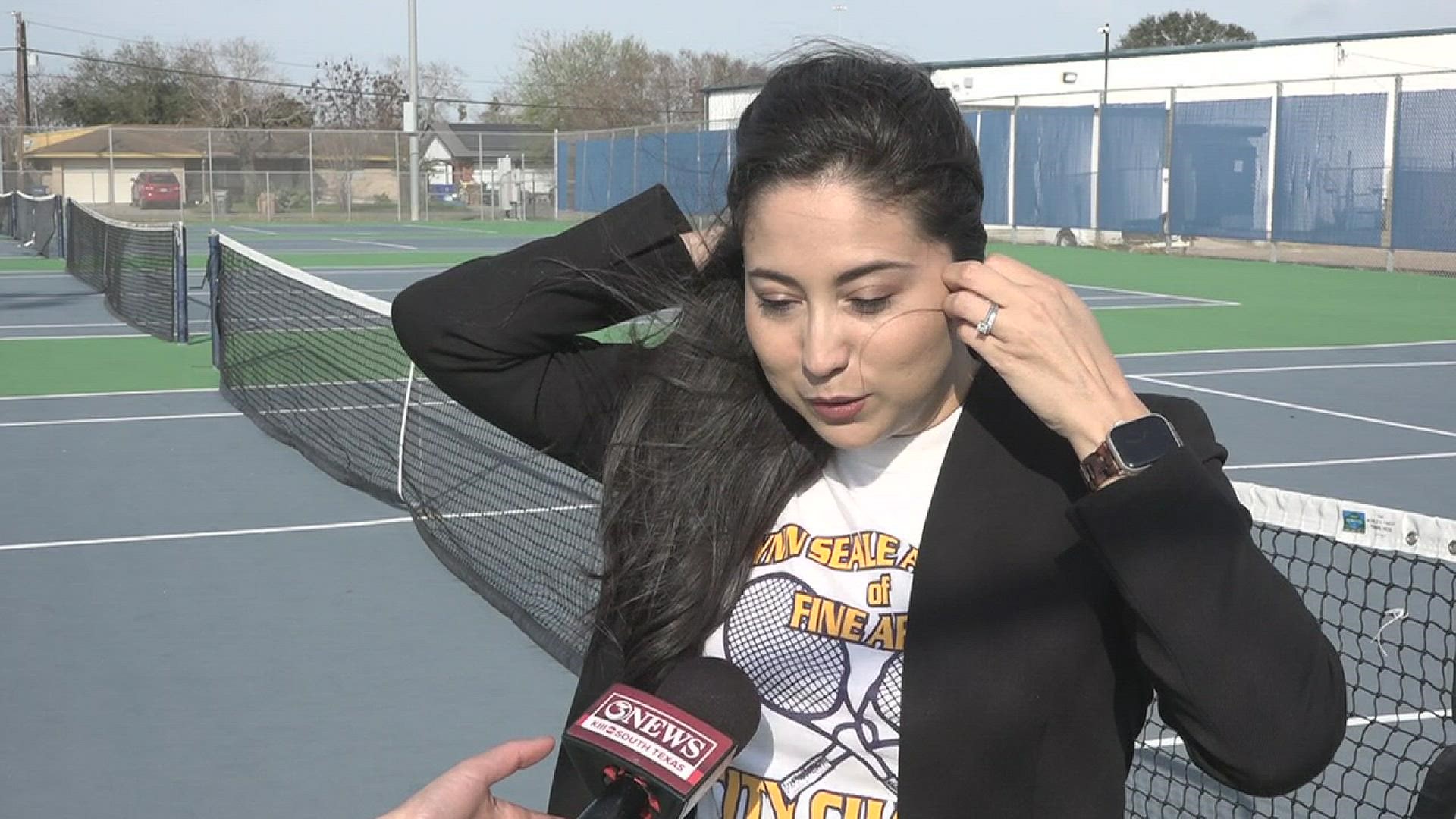CORPUS CHRISTI, Texas — Anne Dobson remembers hearing coach Cleveland Gilcrease before ever seeing or meeting him.
"I actually heard him first, at Al Kruse (Tennis Center)," the Tennis Success board member said. "He had an incredibly big voice to go with his big smile. And he was instructing. He taught a lot of children, and usually in groups, and I kept hearing the word ‘beautiful.’"
Ask literally anyone about the former Wynn Seale Junior High tennis coach, and they will all tell you "beautiful" was his favorite word.
"He would get up and talk, and he would just talk about how beautiful everybody was," said former Al Kruse Tennis Center Director of Tennis and Contract Manager Susan Torrance. "You would go out of there and you would -- you would be beautiful. You could not be around that man and not be inspired."
Most men don't use "beautiful" in their everyday language, but then again, Gilcrease wasn't your everyday man.
"Almost everybody I know was touched in a profound way, just by his kindness," said former student Andrea de la Garza. "Just his ability to kind of see what we needed without us realizing it."
Gilcrease died Saturday evening, leaving the Corpus Christi tennis community with beautiful memories of a patient, generous, and kind teacher, friend and colleague. He was 88.
A visitation will be held from 6-8 p.m. Thursday at Corpus Christi Christian Fellowship, 6602 S. Staples St., and his funeral service will be held in his hometown of Columbus at 1 p.m. Saturday at St. Paul United Methodist Church, 910 Preston St.
He is survived by his wife of 64 years, Agnes, his children Beverly, Nichelle, Durrell, and Craig, and numerous grandchildren and great grandchildren.

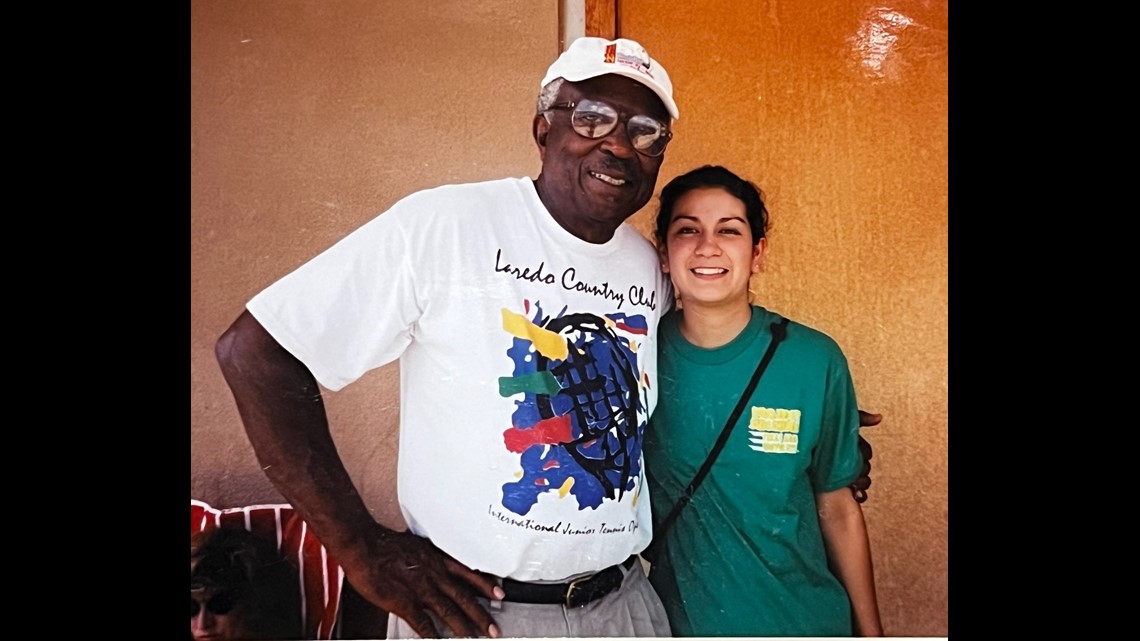
'It is a less beautiful world without him in it'
Numerous people who spoke with 3NEWS about Gilcrease described his bond with his students as "magical."
"And the kids just, I mean, it was the most magical thing to watch Coach Gilcrease with young people, that I think I've ever witnessed in my life anywhere," Torrance said. "Coach got across the one thing that you have to do, and that is: Those kids knew that coach cared about them.
"And when children know that you care about them, it's easy to get them to be committed to whatever it is -- I don't care if it's tennis or your favorite subject. You look back, you'll say, ‘Gosh, I had a really good teacher.’ "
He was named the Corpus Christi Tennis Association's Coach of the Year in 1991, and received the USTA-Texas' Lloyd Sessions Educational Merit Award. His work with kid was again recognized in 2011, when the City named May 7 "Cleveland Gilcrease Day."
The NAACP also honored him with its Martin Luther King Jr. Living the Dream Award in 1998.
"He received those awards, and that really touched him," Dobson said, "but that's not why he did anything he did. He really just wanted these kids to succeed in life, the way that he had."

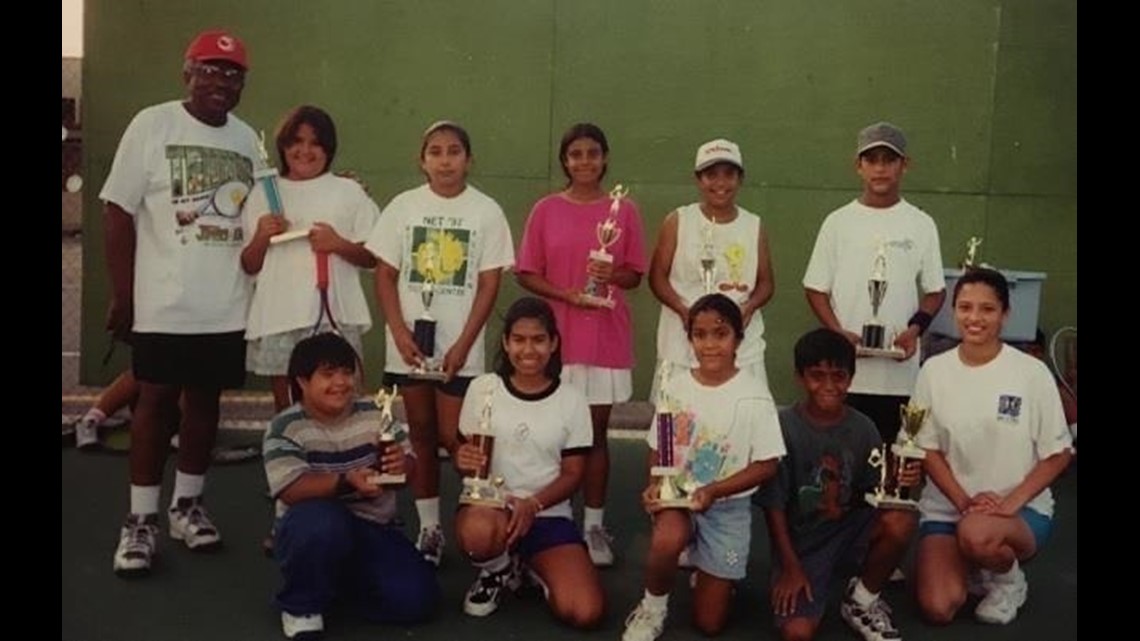
He taught lessons that the adults around him even picked up and incorporated into their lives, sometimes without even realizing it.
"He really allowed kids to see their own greatness, on and off the court," Dobson said. "He recognized something in these kids, you know. He probably could have saved every kid if he had the time, but he truly made them believe in themselves in hard situations.
"It is a less beautiful world without him in it," she said. "He would say it's still beautiful. That's what he would say."
Diana Garcia was a part of Gilcrease's first tennis team at Wynn Seale. The Tuloso-Midway ISD teacher said he heavily influenced the way she approaches teaching, and coaching, when she coached tennis at Miller High School.
He taught her that connecting with students is pivotal to success.
"I think it was just the building order for having a good relationship -- rapport with the kids," she said. "I think sometimes we tend to forget, you know, educators are in the kid business. And sometimes we forget those things."

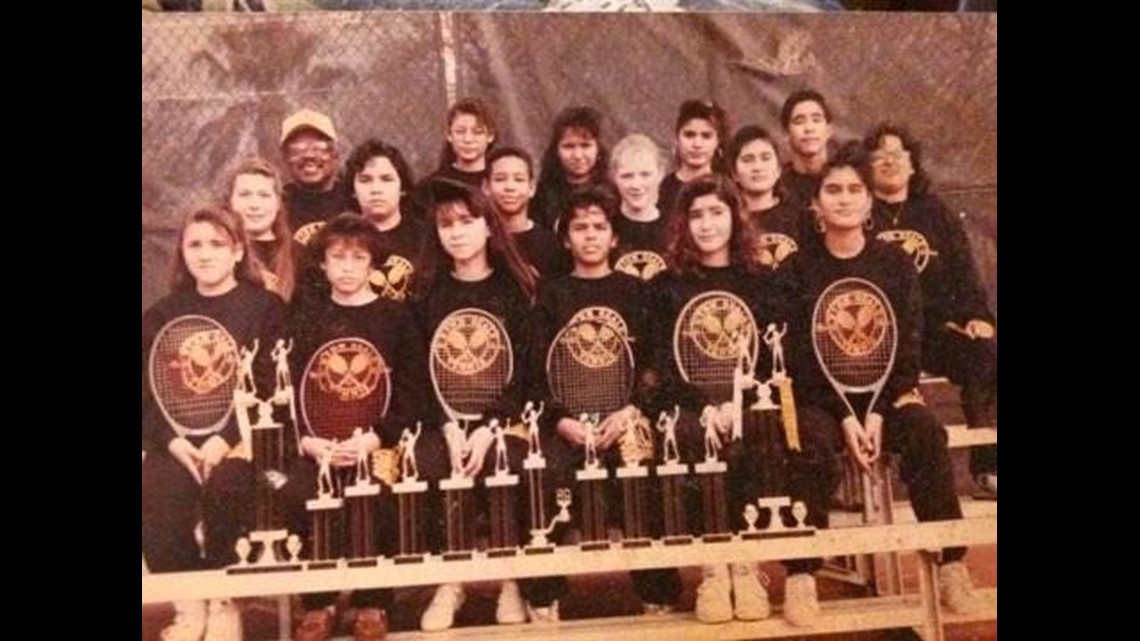
'A true gentleman and decent person'
Wynn Seale was on the West Side of Corpus Christi. Many of the students it served were from families that didn't have a lot of money.
Arlene Medrano's mother worked from 3-11 p.m. to support her three daughters, making it hard for them to participate in extracurriculars.
"There was no extra income for any sport, let alone tennis, which is a very expensive sport," she said.
"The majority of the children in my neighborhood were probably in gangs or pregnant by the time, you know," de la Garza said. "They didn't get out of high school much."

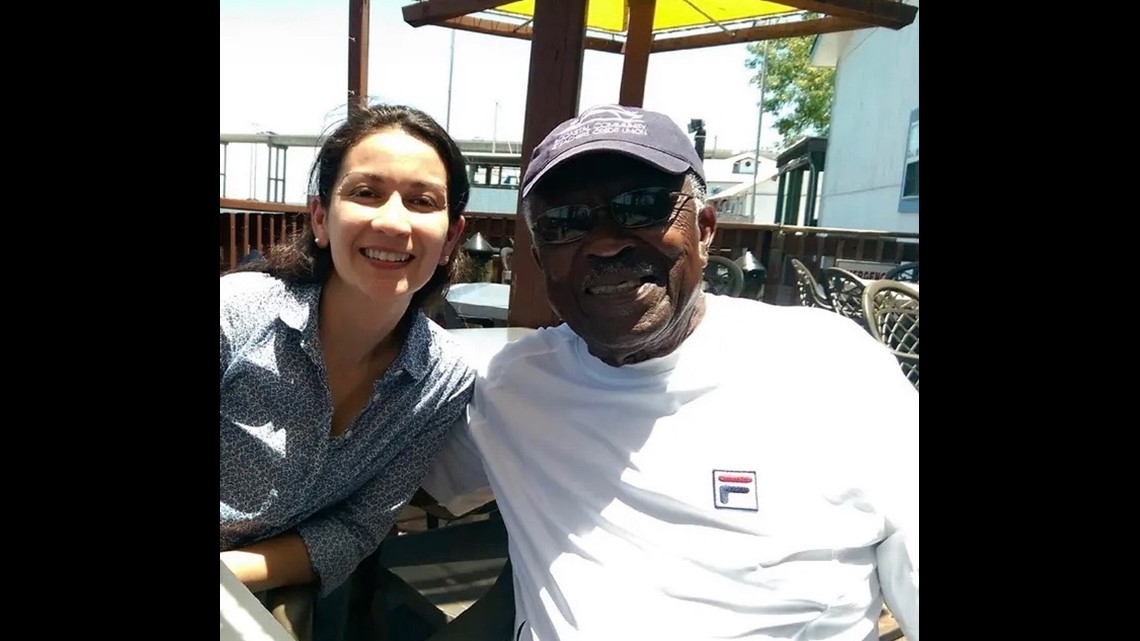
Retired Corpus Christi Country Club tennis pro Ron Woods understands. Having having grown up in the same neighborhood, when the possibility of playing tennis entered his life, he had to really think about it, because it wasn't exactly popular on the West Side of town.
" 'Tennis,' I said. 'Well, that's something I can play year round," he said Wednesday. "And I said, 'But that’s a sissy sport. I don't know if I want to try that.'"
But it beat working in his parents' mom-and-pop grocery story, so he gave it a shot, and had help along the way, much like the help Gilcrease gave his students.
"My parents weren't poor, but they didn't have the financial means to pay for tennis lessons," he said. "They struggled to get me a tennis racquet and keep me in tennis shoes. Keep my racquet strung. I mean, there's a cost involved here. And so they made some sacrifices financially, in a small way, but no less important. I was lucky I had guys like Coach Gilcrease."
Gilcrease was so influential in the community that several of his students asked the Corpus Christi Independent School District to consider naming a local school after him, and the free camps and programs he ran planted a seed for Tennis Success, a local program geared toward kids from lower-income families.
The program was started by Ronald Elizondo, a former student, and Gilcrease was one of the organization's honorary board members.
"I mean, he was just all around -- and I'm sure you learned from everybody -- was just really a true gentleman and decent person," Woods said. "(He) cared about the kids."
'He was a big believer in education'
His interest in seeing them succeed wasn't limited to the courts, either.
"He was a big believer in education, and used tennis as a tool to get people to see that they could be anything they wanted to be in life and not be held back by anything," Torrance said.

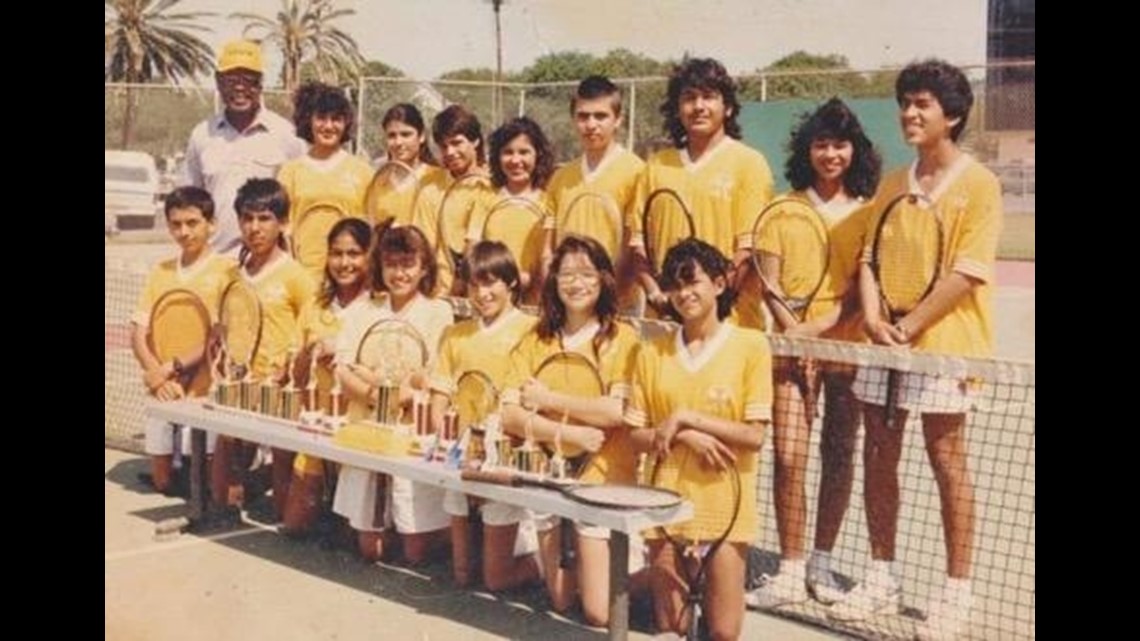
He taught science at Wynn Seale, as well as coaching, from 1985-2002, earning the school's Teacher of the Year honors and a nomination in 1991.
He also coached at Baker Middle School, St. James Episcopal School and at Al Kruse Tennis Center.
De la Garza, a former student, said she visited him after moving onto high school. When he asked her if she had applied to college, she said no. He voiced his disappointment.
"And Gilcrease, very firmly, said ‘What?! Don’t come visit me if you have no intentions to go to college,' " she said.
Being from a family that was standard in that neighborhood, she said, college wasn't something she'd ever considered, even though she was a straight-A student. It was understood that she was expected to stay home and help her family financially.
"No one in my family had gone off to college," she said. "No one. No one has a degree in my family -- I have a master's degree. I have those things because Mr. Gilcrease helped guide me there. And I know that I would not have accomplished those things without his support."
Education was so big to him that Tennis Success named a scholarship after him. To date, the scholarship has awarded $176,000 to students. A scholarship also has been created in his name through the USTA Texas Section. It will be accepting applications beginning next semester, Dobson said.
"It's just so profound, but so true, you know – it just takes one person," she said. "If you can influence one person while you're here, to make better their life, that's an accomplishment. But he did it time and time again."

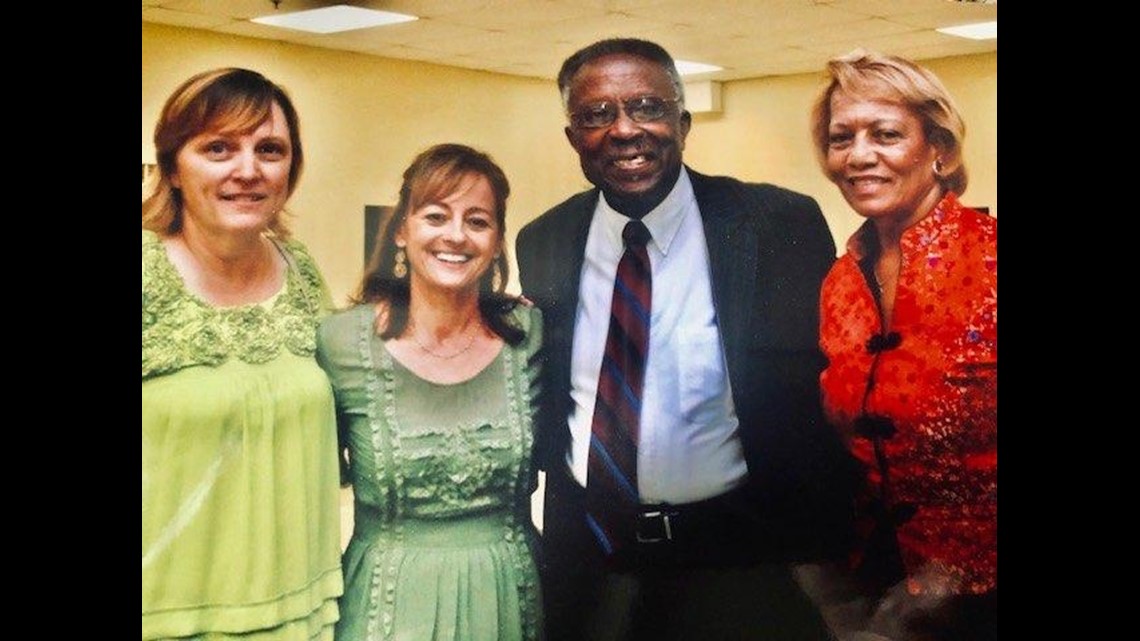
Medrano said he wasn't able to help every student he encountered, but he tried.
Instead of sending kids who would act out in class to the principal's office, she said he would give them a hall pass to take a break, knowing that there was a good chance that if that student was suspended, it could be the last time he ever saw them. And that wasn't a risk he was willing to take with kids who were already considered at-risk.
"That just perpetuates that cycle," she said. "And so what he would do is he would give ‘em a hall pass and he would say ‘Take a walk, man. Just, go, get out of my classroom for a minute, go for a walk and come back,' and they would, and then they would be better."
She attributes that to his intuitive nature, and the fact that his students knew he cared.
"He spewed wisdom and people listened, and that was magical," she said, "because I don’t think anyone like rolled their eyes at him or was like ‘You don’t know what you’re talking about.’ "

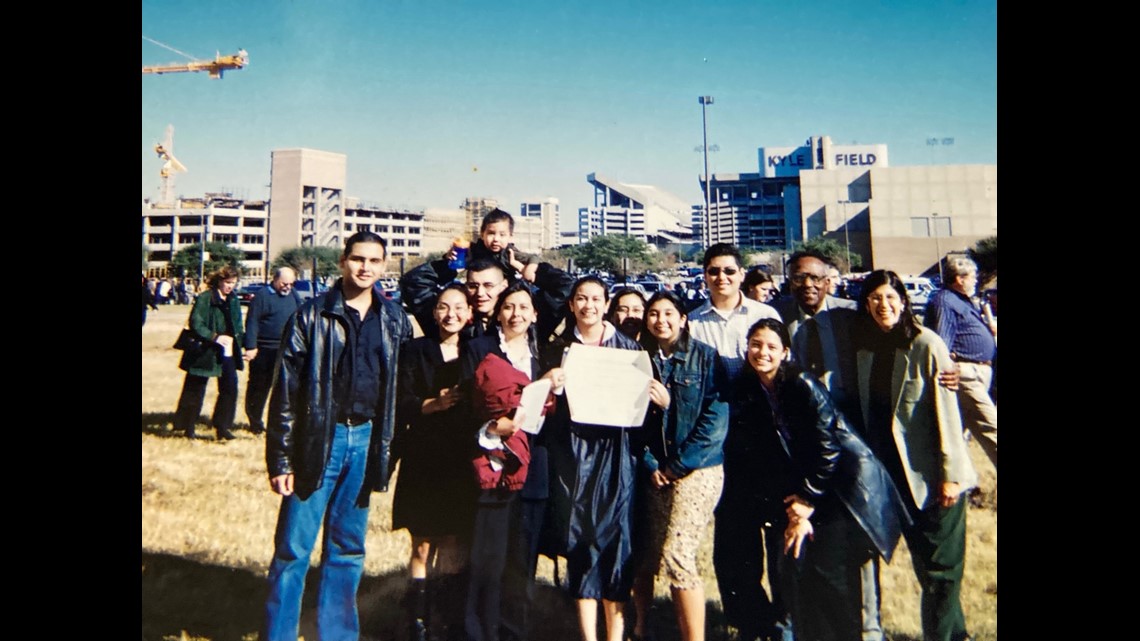
He was so committed to his students' education that he lent de la Garza his credit card to rent a van so she could move to College Station. He helped her move And when times were tough at home, he discouraged her from quitting school.
"I do truly believe he's saved so many of our lives that way," she said. "And I know he helped people more in other ways who needed it, who maybe were having more significant issues in their home. He was just so receptive to that.
'I couldn't have done it without her'
His dedication to his students ran so deep that he gave of his own time and money to see them succeed.
While he was able to form partnerships and help get sponsorships and even jobs for his "kids," a lot of what he did was done with his own money.
"Coach Gilcrease really gave from himself," Dobson said. "So much of what he did was just his own money, and that's what was so incredible."

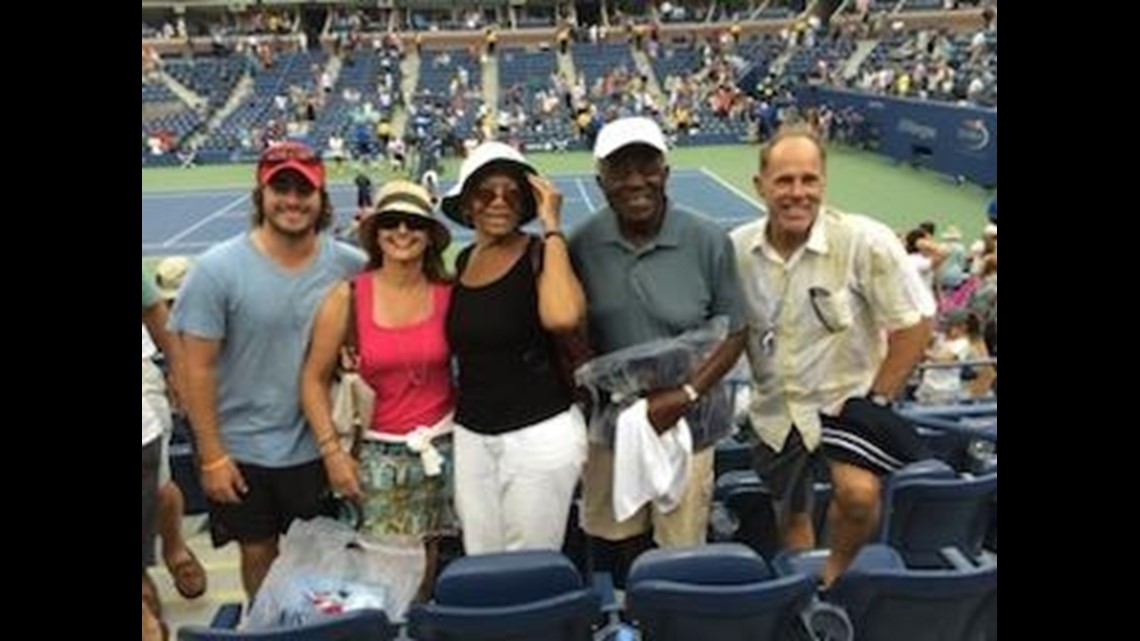
He started giving free lessons at tennis courts around the city, and former students would help him out during his free clinics and camps. Medrano helped him give junior development lessons when she would come home from college.
"It was an hour, hour and a half, every Friday, and kids from the neighborhood would come and get their little lesson and make it fun," she said. "That was the whole goal. We weren’t hardcore. He wasn’t trying to teach them topspin – he just wanted to teach them the rules of the game, how to behave properly on a tennis court."
And for de la Garza, it was a way for her to provide for her family when her parents couldn't.
"I mean, we were poor," she said. "I'll just say we were poor. We didn't always have food to eat. And Gilcrease, I think he just knew those things about me."
He would suddenly find "work" for her helping out with his students, even though he himself wasn't always being paid to give the lessons they taught.
"All of a sudden, he made me to help out with tennis camps, and I helped out with summer tennis camps," she said. "Gilcrease would pay me sometimes: 'Here's 100 bucks, because you've worked here from 8 to 5.' And I did -- I stayed on the courts all day, from 8 to 5, playing tennis."
His generosity was fully supported, and given with his wife, Agnes' blessing.
"He would tell me -- 'I couldn't have done it without her,' " Dobson said. " 'She supported what I did.' She had to. She loved those kids, too."
De la Garza said Agnes was used to her husband's students being at the house. They're just a part of the family, she would say -- He won't have it any other way.
Medrano calls Agnes "Nan," which is what Dobson said Agnes' children also call her.
"He was the only father figure I had in my life, and so my mom was also close to him," she said. "They were friends. They would talk without me all the time, and they would consider each other friends. They would just talk and keep in touch with Gilcrease and Nan."

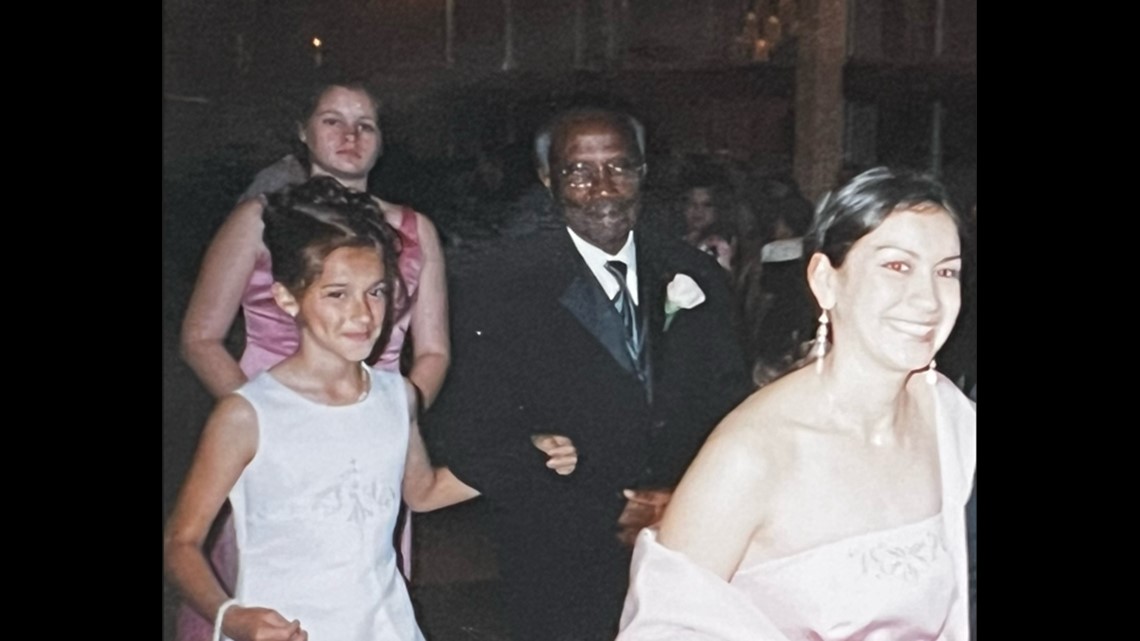
'How was he like a dad to so many people?'
He became a part of a lot of his students' families, too.
"My mother would make me breakfast, and she'd asked if Mr. Gilcrease wanted a taco, and Gilcrease would show up and I’d jump in the vehicle and we'd go play tennis," she said.
His death has radiated through Medrano and de la Garza's families.
"My mother has been having a hard time with this, too," de la Garza said. "She told me, she said 'I remember when the hurricane hit and I had no electricity. And Mr. Gilcrease drove all the way over and gave me a flashlight. He left his number and said, 'You call me if you need anything.’ "
De la Garza said her mother never called, even though she knew his offer was genuine, but she still has that flashlight, and it breaks her mother's heart to look at it now.
Gilcrease attended de la Garza's wedding and walked Medrano down the aisle at hers. She said she has appreciated the outpouring of memories and stories and former students and teammates that have reached out since his death.

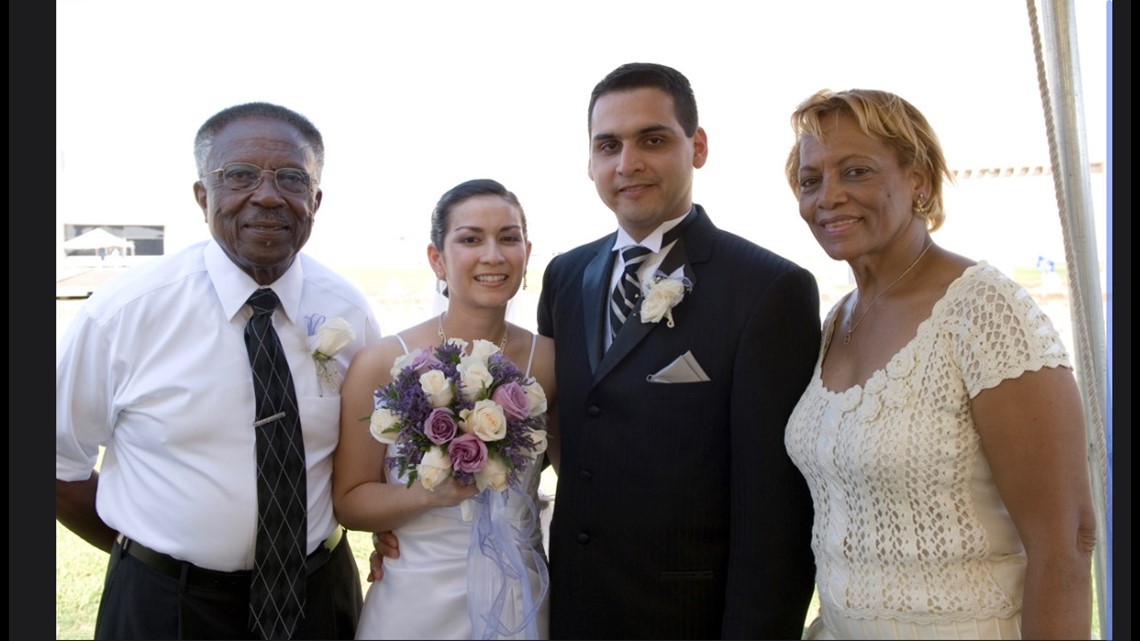
She said discovering the sheer number of kids he made feel special, and like family, is overwhelming.
"It’s like 'How was he like a dad to so many people?' ” she said.
De la Garza said he would do paternal things like check them when they took their eyes off the ball -- both on the court and in class and life.
"You know, if he thought maybe we were not behaving appropriately, maybe we were getting caught up with boys or getting boy crazy, he would let us know immediately that we needed to kind of recheck our priorities there," she said. "And it was all of those parental things that we all needed."
Dobson acknowledges that it's hard to understand that such a person could have really existed unless you'd met him knew him.
"He recognized something in these kids, you know," she said. "He probably could have saved every kid, if he'd had the time, but he truly made them believe in themselves in hard situations. So, I'm just so proud to call him my friend."
'There was some kind of magic that he would do'
Woods called Gilcrease one of those people that comes along in a lifetime who has the ability to leave a lasting impact, helping his students to respect the game, and themselves.
Having experienced bigotry and prejudice in his life influenced him immensely, Medrano said.
The only time Garcia remembers seeing him upset was when he felt an opposing school's coach was taking advantage of a situation.
"He had an argument with one of the coaches and thought (something at the match) was unfair," she said. "He said (it was something) along the lines of: it was just not fair for us. And we left. He took a stand on things that he felt were wrong. He wasn't gonna let us be mistreated."

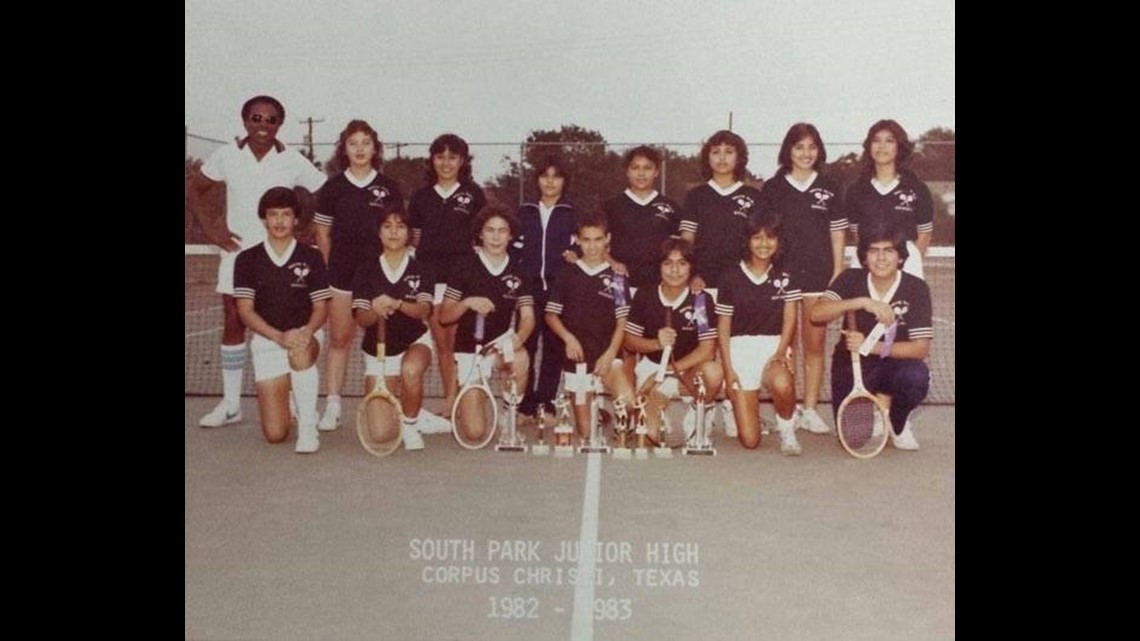
He also wouldn't allow his students to feel "less than" at matches based on their clothes. Even though they couldn't afford proper tennis clothes and equipment, he found a way to get that for them, too, thanks to patrons and staff at Al Kruse.
De la Garza remembers him bringing a big bag of clothes, shoes and racquets, into his classroom one day, and though they were hand-me-downs, it gave them confidence when they faced off against more prosperous schools.
"I remember it was so exciting," she said. "And we felt like we belonged, you know. We didn't see a difference there, you know. We were maybe the poor kids on the other side of town, but we showed up. He made sure we had tennis court shoes. We could not show up with running shoes -- Gilcrease would not allow it."
Tennis courts required tennis shoes, he said, in an attempt to instill respect for themselves and the game.
"He showed us etiquette," she said. "He showed us manners. Things that we just -- maybe because of the environments we grew up in -- we didn't know any better."
Whoever felt comfortable accepting the hand-me-downs was able to pick things out, which was another of his philosophies.
"He would say 'If you do it, great. If you don’t do it, great," Medrano said.
It wasn't intended to be indifferent, she said. It was his way of letting the kids make the best decision for them.
"His style was very low-key," Torrance said. "There was some kind of magic that he would do. He didn't have to crack the whip."

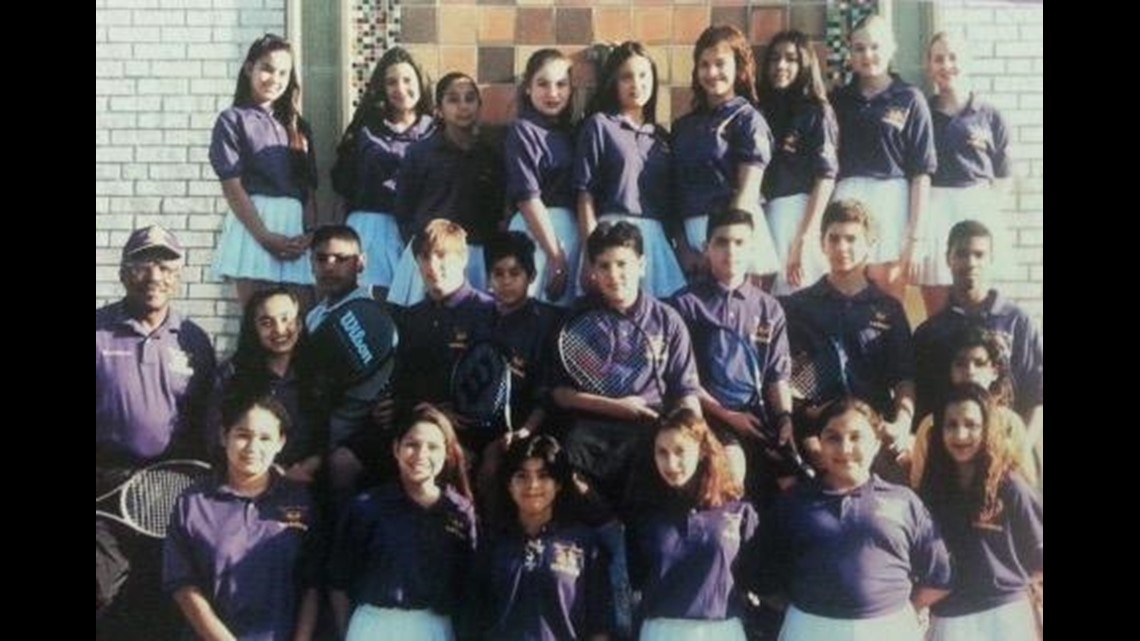
'He was big just on pure handin’ out love'
Everyone 3NEWS spoke with agreed his positivity was infectious, and it spread easily to his students, who didn't always have that kind of support at home.
"They began to have the same passion and love for life and people that he did," Torrance said. "It was it was not only magical, but it was -- you could catch his enthusiasm. So yes, Coach was big on respect, but he was also big on just pure handin’ out love, and giving it very generously."
Medrano said one of his former seventh-graders posted a memory of one of an inspiring note he wrote in her yearbook at the end of the schoolyear.
“'He wrote 'Have a great Summer. See you next year Little-Miss-Future-President-of-the-United States,' " she remembers. "And that child, probably, was from the ‘hood -- like all of us were -- so that could have likely been the only positive affirmation that person would have received in their entire life. But that is what he spoke in -- he spoke in the language of positive affirmation."
And he treated everybody equally, from the youngest, most inexperienced player, to his stars. Torrance said he would give out awards at the end of his three-week camps, and no one was left out -- from "best forehand" to "best attitude."
"We'd have free pizza, and they'd leave out of there and they’d be tennis players!" she said. "I couldn't quite figure it out, because it all looked like somebody had just waved a wand and magic had happened. I don't know. It was a great mystery to me how he got the results he got with, seemingly with very little excitement going on, but they were learning. And they were excited."

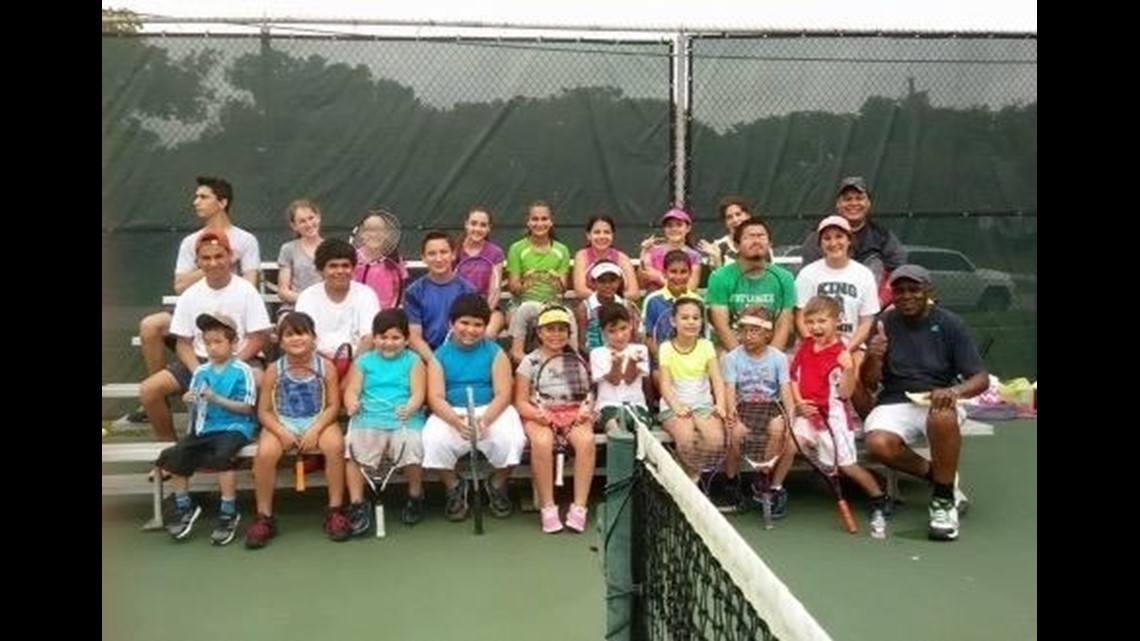
His daughter, Beverly, also told Dobson that the generous, loving, kind father figure Medrano and de la Garza knew was also the man they knew at home.
"You know, sometimes you wonder if that's the person that is there all the time, right, for (their) family?" she said. "And everything that they said -- that was who he was with those children, who he was with me -- that was who he was. And that was the most beautiful thing to learn about him."
Medrano and de la Garza are just two of the students he mentored who hold post-graduate degrees. Medrano works as the Alice asst. city manager, and de la Garza is a child psychologist in Northern Alabama.
Both attribute the success in their lives to him, but de la Garza said when she would tell him that, he'd deflect.
"I would tell Gilcrease ‘You realize I am here because of you. I have accomplished these things in my life because of you,’ " she said. "And Gilcrease would say that ‘No' -- that was because of me. But I truly in my heart believe he was my guardian angel. He guided me. He was there at the right time."

